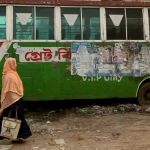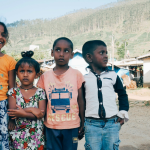In August 2022, five Indonesian women were freed from all charges levelled against them under the Brothels Ordinance No. 5 of 1889. Following a raid on a brothel in Mount Lavinia, Sri Lanka, these women were unlawfully prosecuted by the Mount Lavinia Police Station.
Following the raid, the Sri Lankan Police attempted to prosecute these victims of sex trafficking, for prostitution under the country’s Brothels Ordinance. After months of litigation led by Attorney-at-Law Jerusha Crossette Thambiah, one of iProbono’s Human Rights Defenders, and the instructions of the Attorney General of Sri Lanka, the hearing Magistrate dropped all charges against the victims and released their passports.
The Indonesian women were trafficked into Sri Lanka, under the promise of securing employment at star-class hotels. Upon arriving to the country, their passports were confiscated and they were forced to engage in sex work at a brothel in Mount Lavinia. In October 2021, a passer-by reached out to iProbono, after he received a note from one of the women stating that they were being held against their will. Using this information, a complaint was made to the Police and the brothel was raided. The victims of the illegal sex trafficking ring were taken into police custody. While the Brothels Ordinance only covers the “suppression of brothels” and prosecution of the “keeper or manager” of a brothel, the victims who were forced to engage in sex work were being incriminated under it.
The victims’ lawyer, Mrs. Thambiah objected to the victims being charged under the Brothels Ordinance. The Courts agreed to hear the objections in full, following the filing of formal charges. Upon being released on bail, the victims took refuge at a safe house managed by the Indonesian Embassy in Colombo. iProbono approached the embassy to push for prosecution of the brothel owner and related perpetrators.
Section 360C of the Sri Lanka Penal Code provides for the punishment of sex trafficking with up to 20 years of imprisonment. According to the judicial precedent, sex work is not illegal in Sri Lanka, only the brothel’s management can be held accountable. However, the police had initially failed to charge the management and charges were only filed against the brothel managers during the later stages of the litigation process. While the victims were produced before the Magistrate and eventually released on bail, the Magistrate ordered the police to further investigate the sex trafficking ring and took custody of the victims’ passports.
After months of litigation that began in November 2021, the courts finally dismissed the case, foiling the attempts of the Sri Lankan Police to incriminate the five Indonesian women. Having been victims to the illegal sex trafficking, the Courts cleared the Indonesian women of any prosecution under the Brothels Ordinance. The instructions provided by the Attorney General, reaffirmed the position of the victim’s lawyers – that the Brothels Ordinance did not criminalise the act of working in a brothel but only prosecutes owning and managing one.
iProbono’s intervention in support of these victims, secured their release from the illegal sex trafficking ring and defended from unlawful prosecution.
Thumbnail Photo Credit: Indranil Bhoumik, Mint.







